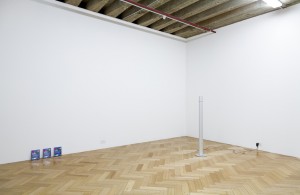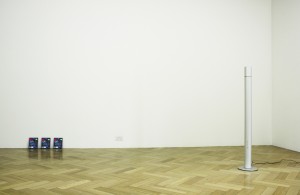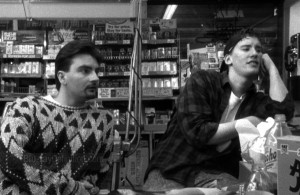‘I’m not even supposed to be here today’, Clerks (1994)
When I was a pre-teen, it was the fully-fledged teenagers I knew who were able—as perhaps only teenagers are—to recount swathes of dialogue from the 1994 film Clerks, directed by Kevin Smith.
I can’t help but quote critic Brad Laidman (surely not his real name?) at length, since Laidman’s review/lament encapsulates both the film’s plot and the empathetic/envious fandom surrounding it since, well, Smith ‘made it’:
‘Clerks for me was kind of like the Beatles on Ed Sullivan were for so many nascent Rock stars. You’re stuck in a dead end town. You’re stuck in the purgatory of a job you hate. You love comic books, but you can’t draw. You love movies, but you barely know which end of a camera the lens is on. You squirrel away time writing a semi-autobiographical justification of your life, praying that somehow your quick wit and pop culture spewing point of reference will someday free you from the shackles of your own private hell. I was in the same spot. I had this novel that I referred to as an existential cartoon. I even titled its word processing file “God”, because it represented what I thought was my last prayer of a chance at living a happy life. Clerks … [depicts a] great love for twisted dialogue … and linguistic attitude are certainly abundantly present and ring out like gunfire, but when Tarantino made Reservoir dogs, he had Harvey Keitel, Tim Roth, and Michæl Madsen to work with. Kevin Smith had a couple of buddies, a convenience store, and some black and white film.’
And I think this parallelism is appropriate because this is the stuff of Greatest Hits—which is immediately visible to us in their ironic collaborative title, but is also apparent in the quotation, outsourcing, editing and collaging in the construction of new work. Pinned down by their own art gods, has this work De facto standard become the footnote that out-played the text? Or the title that jumped the artwork?
For De facto standard, at Westspace, Greatest Hits gained prolific and—to state the obvious—unheard-of media coverage for an exhibition in an artist-run space. Here is the bibliography from their online CV: LA Times, LA Times Business, TIME, Fox News, Fox Business, Yahoo! News, Herald Sun, Desktop Magazine, NBC New York, NBC LA, USA Today, The Washington Post, Daily Style, Gizmodo, Daily Mail, The Age, CNET, Macworld, Art Info, ABC, ABC News, ABC World News Now, The Roast, The Project, Sydney Morning Herald, SBS World News, MX, the Conversation, Don’t Panic, Examiner, The Guardian.
Read all about it: ‘Art grabs headlines for depiction of prosaic uncertainty in terms of the contemporary existential’.
Greatest Hits’ De facto standard appealed media-wise because of its hipster tech-fetish factor. The main player being the perfume, which was made (to order) to smell like a newly opened MacBook, and pumped into the gallery space by a faux stainless steel contraption about the height of a CD rack. It’s funny, it’s wry. The supporting parts within the one-room exhibition included three identical copies of the film Avatar. The three Blu-ray Disc covers on the floor were leant up against the gallery wall, as well as a photographic transfer of a very realistic-looking slice of pickle stuck to the gallery wall. Angsty commentary on futurism, advertising, and machismo are the key components of this work. It’s all about quotation, careful selection, editing and complicated professionalism. (Read, like Clerks.) And employing a very different tone, compared with Dane Mitchell’s use of perfume to breach gallery, viewing and conceptual space.
It’s unclear though if De facto standard is also a reference to Mitchell’s work with scent in the gallery space or if the artists are aware of this work by Boris Dornbusch shown earlier in 2012 entitled Dimensions variable (described by Dornbusch as ‘The fleeting scent in the very moment between opening the lid and just before removing the display protection sheet from a MacBook Air purchased a few seconds ago’).
Perhaps the overly casual and not apparently entwined supporting objects let down the lead in De facto standard. As one meaning of the title of the work implies, De facto standard operates as a kind of manipulated shortcut, exaggerated as a result of the lite supporting objects.
Greatest Hits, De facto standard, Westspace, Melbourne, 20 April – 12 May 2012.


